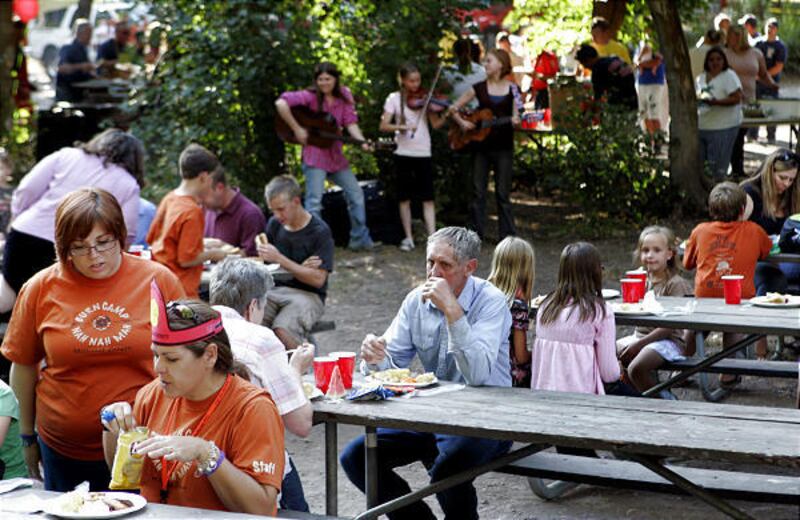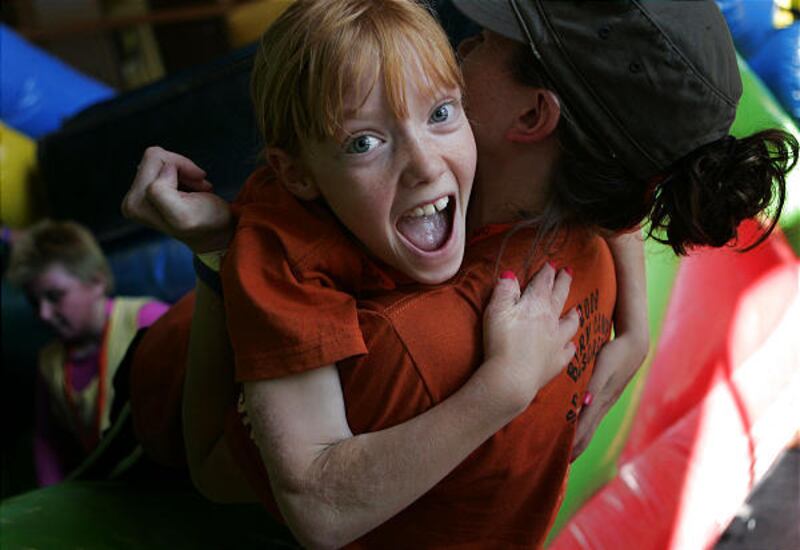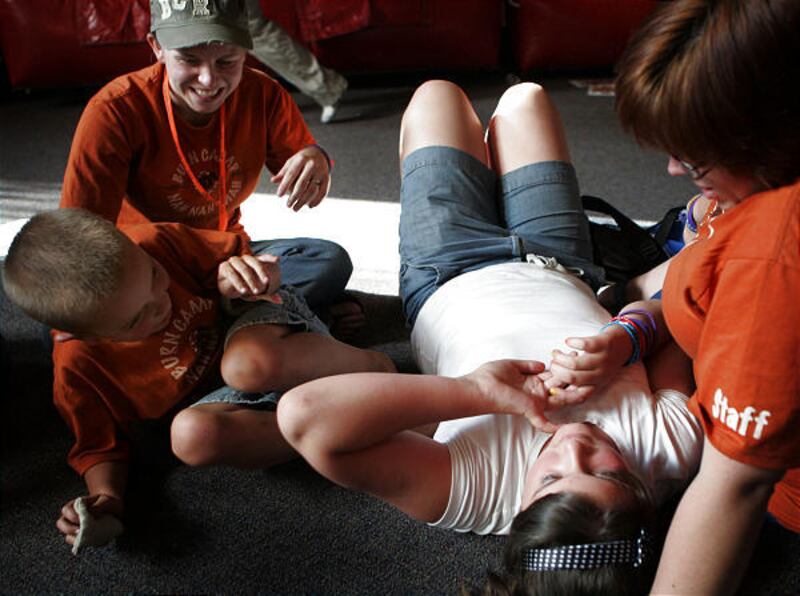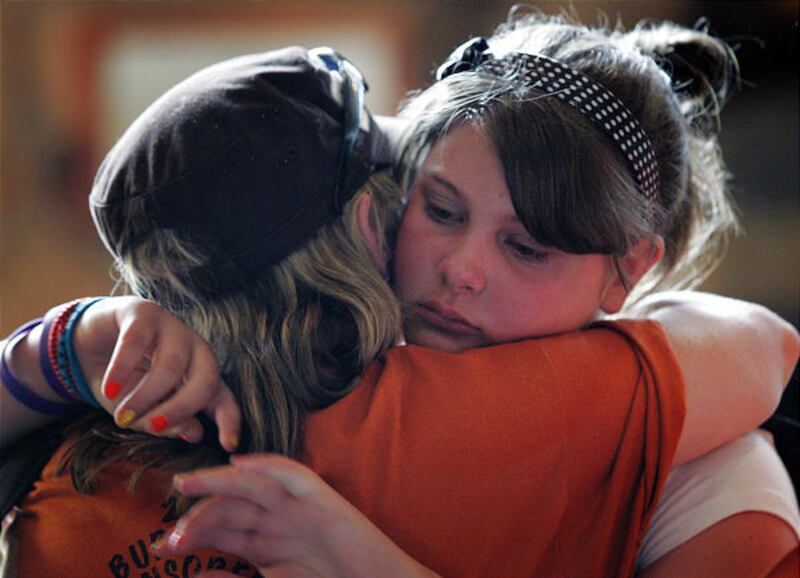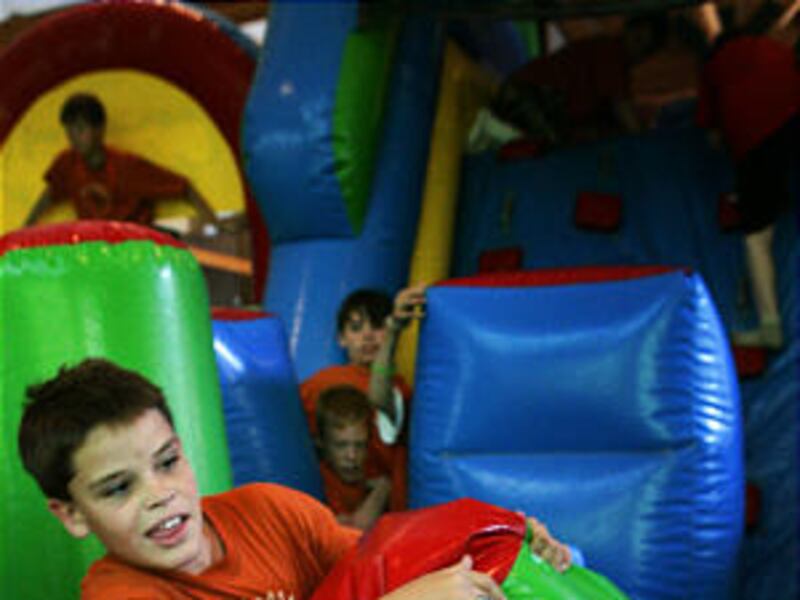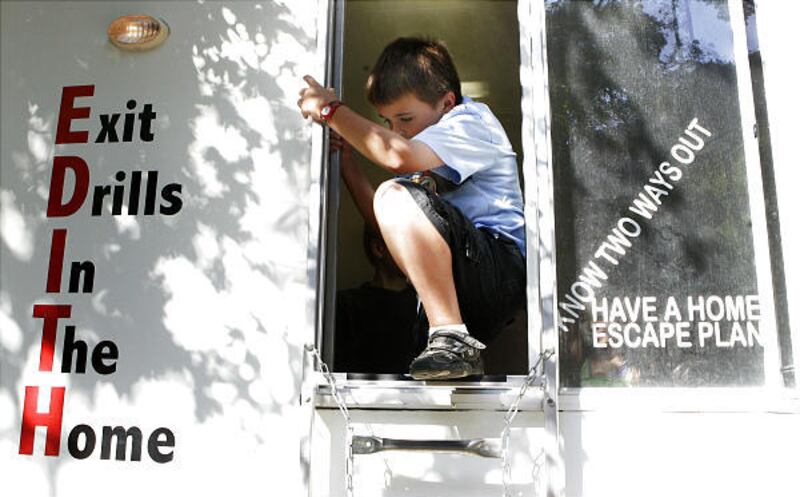Doctors and nurses may not be able to fully repair the physical damage fire can do to children's bodies, but they've been working hard this week to assuage the invisible, emotional scars their young patients carry.
And the healers also are healing from the trauma of having to perform painful procedures on children already in pain in order to help them recover, as they watch kids who may once have been near death enjoy the normalcy of summer camp.
Now in its 10th year, University Hospital's annual Camp Nah-Nah-Mah provides a safe place for burn survivors ages 6 to 12 to be OK with themselves, despite the physical disfigurement and emotional trauma they've endured. Held at Camp Tracy in Millcreek Canyon, the four-day event ended Tuesday with a carnival, including firefighters and a ladder truck for the kids to explore.
One of them, 11-year-old Jack German, is older than his years. A severe burn when he was 15 months old has shaped his life in ways most of his peers at home can't understand.
"Being with other people who have been burned, you don't feel so different because you know they are there," Jack said. "I've been in the hospital for (skin graft replacement) treatments a lot, and they talk about it here" in a way he and his camp friends understand.
"Outside, when I tell people what happened, they say, 'What?' I tell them here and they are like, 'Oh, I understand. I was burned, too,' " he said.
Jack has been through enough that mosquito bites and scratches aren't a big deal, he said, but he is leery of spiders and scorpions. As for fear of hospitals, doctors and nurses, he's matter of fact: "They don't scare me. I think they're pretty trustworthy."
Jack said he'd like his friends at home to know that "my life is as normal as yours, except for the scar. I can do anything they can do," he said, heading toward the ladder truck.
Brad Wiggins, one of the camp organizers, said it's great that the kids can get together and "have fun like crazy," but what makes the experience so meaningful for participants is talking openly about the challenges they face: being bullied, being teased, being embarrassed about being different without the power to change it.
"If you don't do that, you're just dancing around the big, white elephant in the room," Wiggins said.
Counselors gear activities to foster discussion, like the outdoor showing of "Kung Fu Panda" one night.
"The next morning, we talk about the movie and what they learned from it," he said. "He was teased for how he looked" was the first comment, followed by a chorus of nodding heads.
"This is the first time many of these kids get to see another burn survivor," Wiggins said. "At lunch, you'll see a 12-year-old talking with a 6-year-old like there was no age difference. You don't see that happening" outside the camp.
John Stark, who worked as a nurse on the University burn unit for about six years, said he keeps coming back not only because the experience helps kids, but "because it's a cathartic, holistic thing that happens here" for medical staff as well.
"At times you feel like you're ruining them by 'healing' them," Stark said of the daily dressing changes and other painful procedures burn victims endure. "There are so many precious moments that come to mind" when staff members watch children they cared for "just light up when they see you."
At 54, Leonard Tayon is a camp veteran and mentor to his young charges. More than 52 percent of his body was burned during an explosion at a magnesium plant in 1992. Forty-seven percent of Tayon's burns were third-degree and had to be grafted over with new skin. He was blind for 10 months and in a medically induced coma for two months, as doctors put him back together.
"You come here thinking you are going to help someone, and you go home the one that has been helped," Tayon said. "You can't help but go home a better person."
His experience was "extremely hard to go through and especially to see my family suffer."
"It can either destroy families or make them stronger," Tayon said, noting his case was the latter, thanks to his wife, Janet, his children and a good support system.
Despite the challenges and lifelong physical scars, being burned has given him "an opportunity to learn humility and that life is really precious."
"Material things really don't matter," Tayon said, "but if you can change the life of a child, you've changed the world."
His advice for parents of burn victims: "Love them unconditionally. Support them, but don't baby them."
For parents in general, Tayon teaches fire prevention in Grantsville.
"Turn the temperature on the water heater down to 124 degrees," he said, noting it only takes 2.5 minutes before a third-degree burn can happen if the water is too hot.
Also, "make sure the smoke detectors work, that the kids know two ways to get out of the house, and that they know where the family meeting place is," he said.
e-mail: carrie@desnews.com

